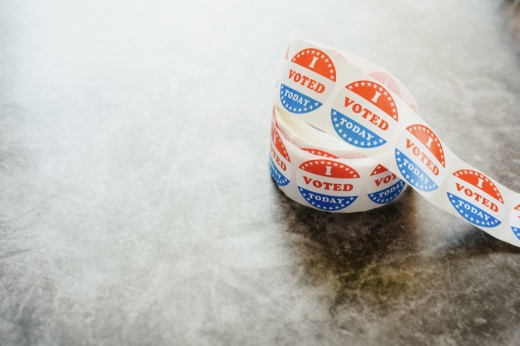On the ballot
This year, Texans can cast their votes for the president, 15 Texas Senate seats and all seats in the U.S. and Texas Houses of Representatives.
Eight statewide races will be on all voters’ ballots, including a U.S. Senate seat, among others. All eight seats are held by Republican incumbents who are running for re-election.
Local positions, such as sheriffs, county tax assessors and justices of the peace, will appear on the ballot in Harris County. Click here for Community Impact’s local voter guide, and click here to view a personalized sample ballot before heading to the polls.
By the numbers
According to information from the Harris County Clerk’s Office, 211,223 Harris County residents cast ballots in the early voting period Feb. 20-March 1, with 90% being in person and about 10% via mail ballots.
Because Texas is an open primary state, registered voters can choose to cast their ballots in either the Republican or Democratic primary. In Harris County, 52% of all ballots cast were in Republican primaries, while 48% of voters opted to vote for Democratic candidates.
In each race, the candidate that receives over 50% of the votes will advance to the Nov. 5 general election. If no candidate wins the majority during a primary, the two candidates with the highest percentage of the votes will compete in a runoff election May 28.
At the polls
Harris County residents can vote at any polling place in the county.
At the polls, voters must select which party’s primary they want to participate in. Voters who participate in a primary election can only vote in the same party’s runoff election.
Voters must bring at least one of seven forms of identification to the polls:
- A Texas driver license (issued by the Texas Department of Public Safety)
- A Texas personal ID card (issued by the DPS)
- A Texas handgun license (issued by the DPS)
- A Texas election ID certificate (issued by the DPS)
- A U.S. military ID card with the voter’s photograph
- A U.S. citizenship certificate with the voter’s photograph
- A U.S. passport
Voters can bring written materials, such as notes or sample ballots, to the polls. However, voters may not promote any candidate, political party or ballot item within 100 feet of the entrance to the polling place.
Cellphones and other wireless devices are also banned within 100 feet of voting stations.
Guns are not allowed at polling locations.
All Texas polling places must include accessible entrances and offer at least one type of accessible voting equipment, according to the secretary of state.
Voters may use an interpreter at the polls or request assistance reading and marking their ballots. Voters are not required to prove that they have a disability.
Under a recent Texas law, each polling location must provide at least one parking space for voters who cannot enter the building due to an illness, disability or injury. Voters with disabilities can also skip the line to cast their ballots.
What’s next
Preliminary election results—which consist of mail-in ballots and those cast in the early voting period in Harris County—will be shared sometime after 7 p.m. at www.harrisvotes.com/election-results. This website will be updated throughout the night as more results are tabulated, county officials said.
Follow results of key races at communityimpact.com/voter-guide.






